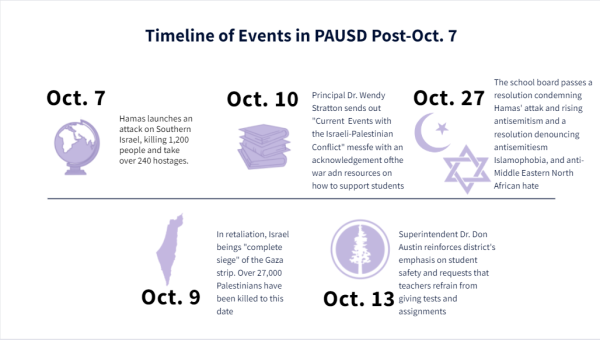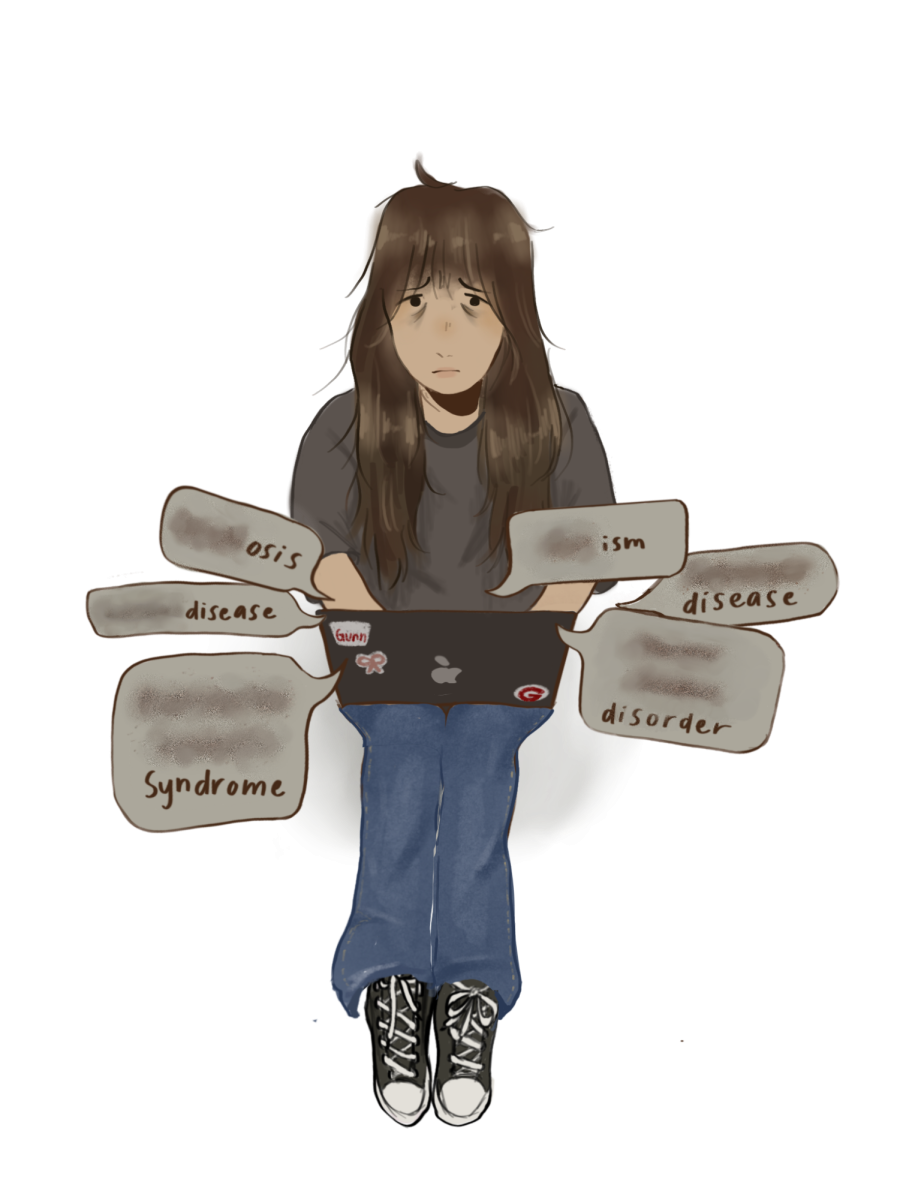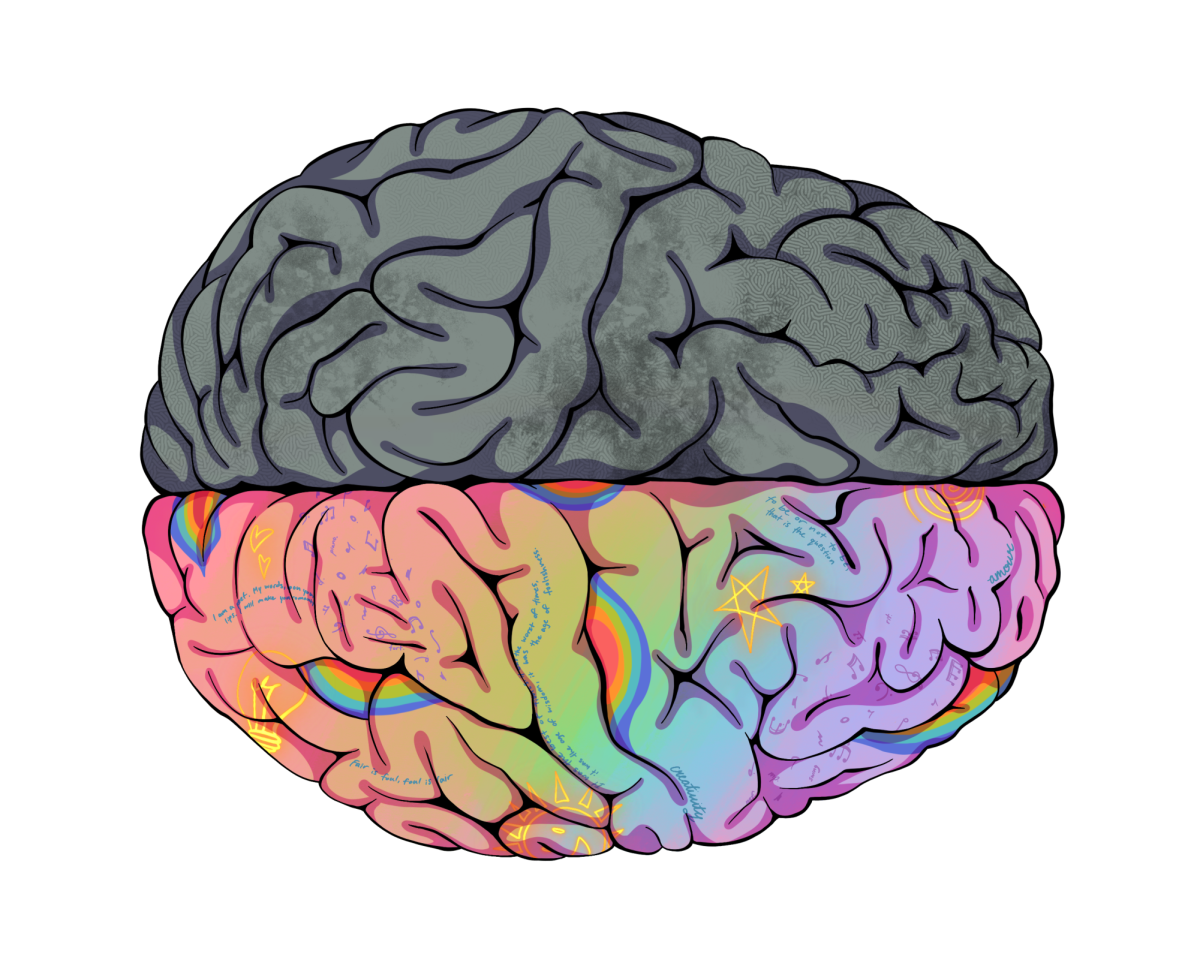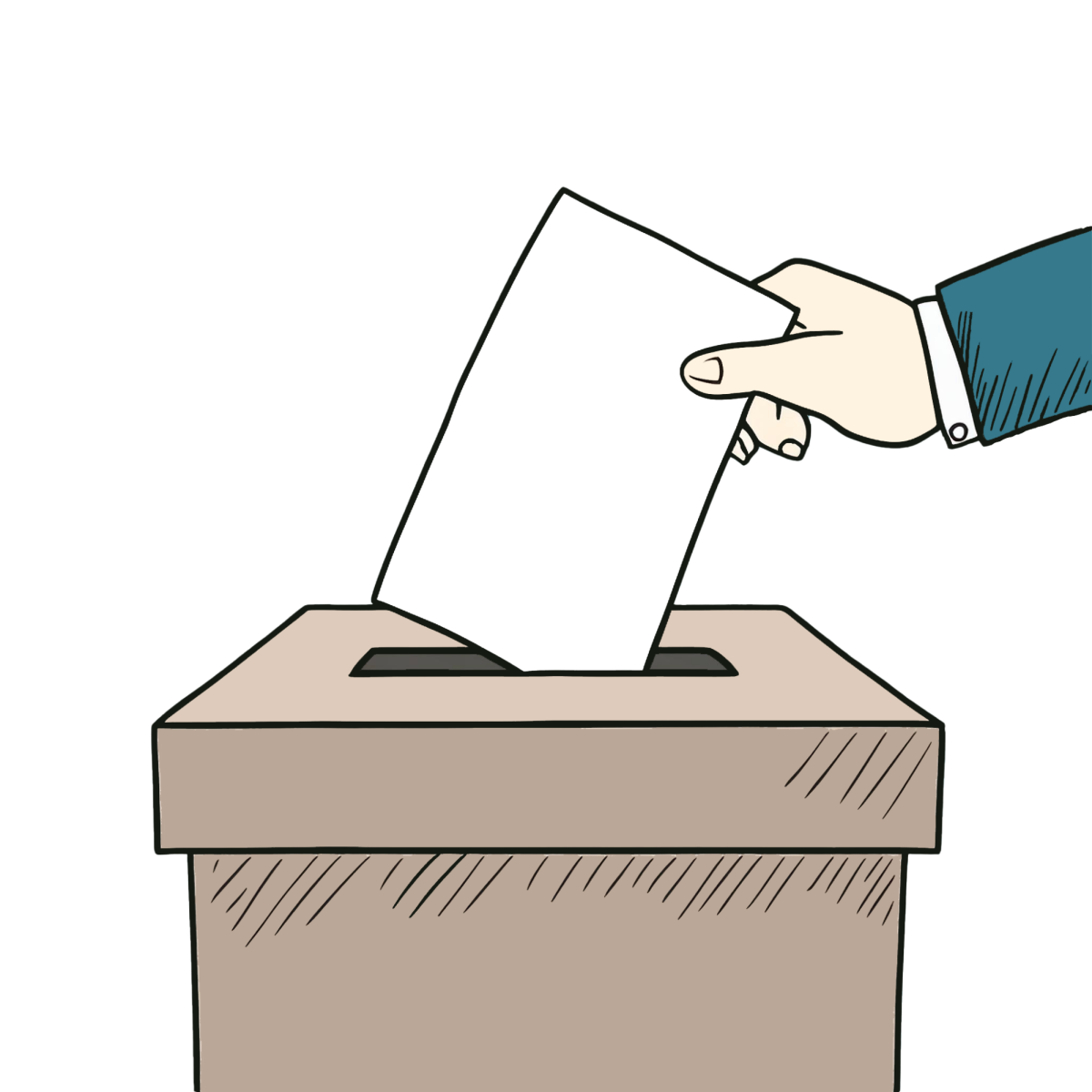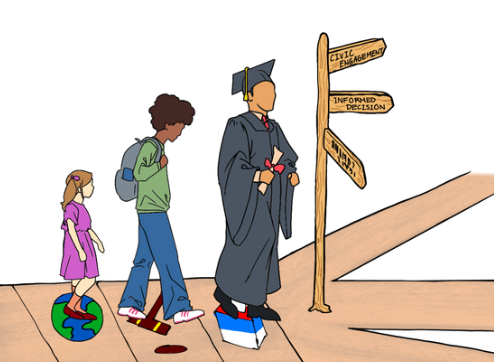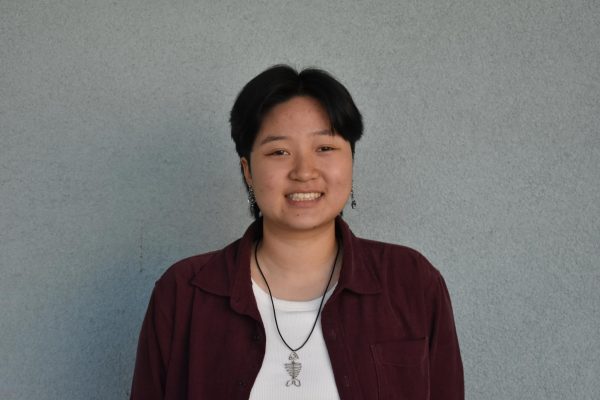On Oct. 7, 2023, Hamas’ attack on Israel — which prompted the Israel-Hamas war — had a profound impact on students and staff in PAUSD, necessitating a thoughtful and nuanced response from the district. Instead, as tests were delayed and assignments postponed per Superintendent Dr. Don Austin’s mandate, responses from teachers ranged from annoyance at schedule disruptions to disjointed acknowledgments of the war’s impact on students. Meanwhile, those directly affected by the war endured a day marked by confusion, isolation and pain, highlighting a pressing need for a more coordinated, sensitive and informed approach from Gunn’s staff in educational settings. Thus, it is imperative that PAUSD teachers are adequately prepared to guide students through discussions on complex geopolitical conflicts, including dealing with hate speech in classroom settings.
Recent statistics from the Anti-Defamation League and the Council on American-Islamic Relations highlight the urgency of addressing antisemitism and Islamophobia in schools. According to the ADL, U.S. antisemitic incidents reached their peak after Hamas’ Oct. 7 attack, a 337% increase from the year before. Similarly, in the four weeks following Oct. 7, CAIR received over 1,000 reports of anti-Arab and Islamophobic behavior, a 216% increase from the previous year.
Teachers play a crucial role in fostering analytical and critical-thinking skills as students try to grapple with complex geopolitical conflicts. Acknowledging this, PAUSD Board Policy 6144 mandates that instruction be presented in a balanced manner, addressing all sides of an issue without bias or promoting a particular point of view. While total objectivity may not always be possible, through presenting facts from a variety of reputable sources and holding space for informed discussions, teachers can allow students to form their own opinions while respecting others’.
The challenge, however, lies not in the absence of resources — materials were provided to teachers post-Oct. 7 to guide discussions on the war — but in the confidence and preparedness of teachers to engage with these topics openly and effectively, according to social studies teacher Tara Firenzi. Alongside being able to understand the conflicts themselves, teachers must be able to appropriately confront hate in the classroom. PAUSD has already implemented several equity and wellness trainings for teachers, including the New Hire Equity Training, which explores race, diversity and tolerance. However, the training fails to explicitly cover Islamophobia and antisemitism in the context of events in the Middle East, including the Israel-Hamas war — an incredibly complex subject that cannot be navigated simply with knowledge from general equity trainings. The complexity arises not from the conflict being more important than others, but from its deeply rooted history and the multifaceted political, religious and cultural tensions unique to the Middle East. This omission can lead to scenarios in which educators find themselves ill-equipped to navigate such a sensitive subject in the classroom. As a result, students may feel uncomfortable, unsafe or unsupported in their learning spaces. A staffwide antisemitism and Islamophobia education training that teaches staff how to identify microaggressions and biased learning materials will equip teachers with the necessary tools to discuss current events with students who are both deeply impacted by them and those who may just be curious.
This doesn’t mean that educators have to deviate from their planned curriculum to address current events. While all teachers should have the resources and training to discuss global events if they choose to, it is equally important for those who may not feel it is within their purview — including non-humanities teachers — to communicate their support to students. It is most essential to create an atmosphere of understanding, in which students know they have supporters among faculty who are prepared to assist them in navigating complex discussions and emotions.
This dual approach — equipping teachers with the necessary tools to address sensitive issues directly when possible, and fostering an environment of support regardless of the curriculum — ensures that all students feel seen, heard and valued in their educational journey at PAUSD.
In many ways, teachers are on the front lines of combating discrimination in classrooms, including tackling subtler microaggressions. PAUSD’s messy response serves as a call for a change in how its schools should approach the teaching of global conflicts as they arise. By equipping educators with the necessary tools to address sensitive issues like Islamophobia and antisemitism thoughtfully, PAUSD can foster a more empathetic and informed student body.
